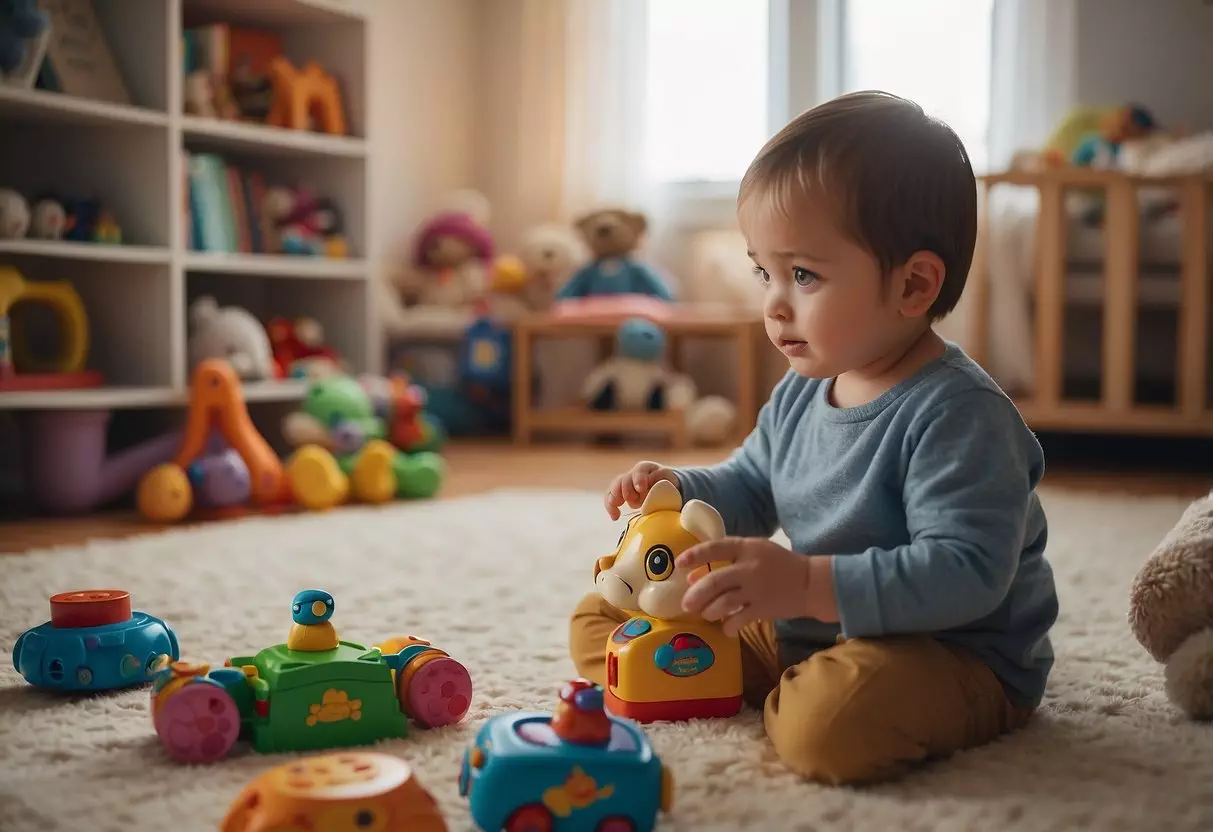Why Do Little Kids Say Mommy and Daddy? Exploring Early Childhood Speech
Why do little kids say “mommy” and “daddy”? It’s a question many parents ponder. The sounds “ma” and “pa” are among the first that babies can easily say and are naturally associated with their primary caregivers. This instinctual language development helps establish early connections.

As children grow, they continue using “mommy” and “daddy” because it reinforces family roles and bonds. This dynamic creates a sense of security and familiarity for kids, making their world feel more structured and understandable.
Plus, calling parents by these titles helps everyone in the family stick to their roles. It’s a simple but powerful way to maintain the family structure and highlight the parenting role.
Table of Contents
The Psychology Behind Calling Parents Mommy and Daddy
Children often call their parents “Mommy” and “Daddy” due to early language patterns and reinforcement of family roles. These terms help children identify and connect with their caregivers, which supports emotional and social development.
Early Language Acquisition
Infants typically start speaking by mimicking simple sounds. Words like “ma” and “da” are among the first sounds that babies can easily pronounce. This simplicity makes “Mommy” and “Daddy” natural first words for children.
Kids learn by repeating what they hear, and parents often refer to themselves using these terms, reinforcing their use. This pattern helps establish a bond between the child and their caretakers.
Early language development is crucial in human development. By calling parents Mommy and Daddy, children also practice important speech and communication skills which are essential for later stages of language development.
Role of Family Structure and Dynamics
Using terms like Mommy and Daddy helps define roles within the family. This identification fosters a sense of security and order for children. It shows who provides care and who holds authority within the household.
In some families, children calling their parents by their first names can be seen as a challenge to parental authority. Using Mommy and Daddy emphasizes the parent-child relationship, establishing a hierarchy that is comfortable and understandable for young children.
Family dynamics play a significant role in the continued use of these terms. By maintaining these titles, children and parents reinforce their bonds and roles, which helps children feel a sense of belonging and stability in their family environment.
Cultural Perspectives on Parental Naming

In different cultures around the world, the names children use for their parents vary widely. Scholars have studied these variations to understand the social and anthropological implications behind them.
Variations Across Different Cultures
In many parts of the world, parents are often called by names such as mama, dada, and baba. These terms are among the first sounds that babies can articulate, making them universally common. For example, in Romance languages, children call their mothers maman, a term close to mama.
In societies like Hong Kong and Paris, children often use formal titles for their parents, which can reflect cultural values of respect and hierarchy. By comparison, in New York, it’s common to hear kids use more casual terms like mom and dad.
Anthropologist George Peter Murdock found that in diverse cultures, these names typically consist of repetitive, easy-to-pronounce sounds. This is why many terms for parents around the globe sound similar, despite geographic and linguistic differences.
Anthropological Studies and Theories
Anthropologists such as Roman Jakobson have studied why children universally use these specific sounds for their parents. Jakobson’s research highlights that consonant-vowel repetitions like mama and dada are among the simplest sounds for children to produce.
These studies suggest that easy repetition plays a crucial role in the development of these names. In various societies, the terms reflect social structures and roles within families.
In some cultures, like those in Durban, grandparents are also given specific names that signify respect and lineage. These names help children understand their family’s generational relationships and societal expectations.
The study of these names reveals much about the connections between language development and cultural identity.
The Role of Sounds in Language Development

Language development in little kids involves specific sounds that are easier for them to produce. Both “mommy” and “daddy” begin with vocal sounds that are simple to utter and repetitive in nature, which aids in early speech skills.
Phonetics of ‘Mommy’ and ‘Daddy’
Linguists note that the words “mommy” and “daddy” contain simple vowel sounds like “ma” and “da.” These sounds are among the first that babies can make.
Early consonants like “m” and “d” are easy sounds for infants to produce because they don’t require complex tongue movements.
Using the lips and the front of the mouth, saying “ma-ma” and “da-da” becomes achievable early in development.
By the first year, babies often experiment with these basic sounds during babbling. It’s a key indicator of how well their speech skills are progressing.
The Significance of Repetitive Sounds
Repetitive sounds play a major role in language learning for young children. Words like “mommy” and “daddy” use simple, repeated syllables, making them easier for babies to grasp and repeat.
This repetition helps babies recognize patterns in speech early on. For example, the repeated “ma” in “mommy” and the “da” in “daddy” make the words memorable.
You might notice that when babies first babble, they often repeat sounds like “ba-ba” or “ma-ma”. This repetition is not just cute; it’s crucial for developing pronouns and other important words later. For more details, visit Connected Speech Pathology’s blog on baby babbling and communication.
Social and Developmental Implications of Parental Terms

The words “Mom” and “Dad” play important roles in family dynamics and child development. They help children build strong bonds with their parents and influence their social interactions.
Cognitive and Emotional Bonds
Calling parents “Mom” and “Dad” helps children develop emotional connections. These terms are among the first words kids learn, making them significant in language milestones.
Experts suggest that using these familiar terms can make children feel secure. It signals reliability and comfort since kids know that “Mom” or “Dad” are there to care for them.
The emotional link extends beyond words. Smiling at parents and calling them “Mom” or “Dad” can create a positive feedback loop. This helps children associate these words with love and care.
The Impact on Relationships Beyond the Household
These terms shape how children interact with others. Referring to parents as “Mom” and “Dad” helps kids understand family roles and responsibilities.
A well-established family environment can influence how children form relationships outside the home. They learn to respect authority and build trust with others.
Some studies suggest that these terms maintain clear family roles, which can translate into better social skills. Kids may find it easier to navigate relationships with teachers, friends, and other adults.
Overall, using “Mom” and “Dad” goes beyond family settings, helping children relate to a broader social world.
